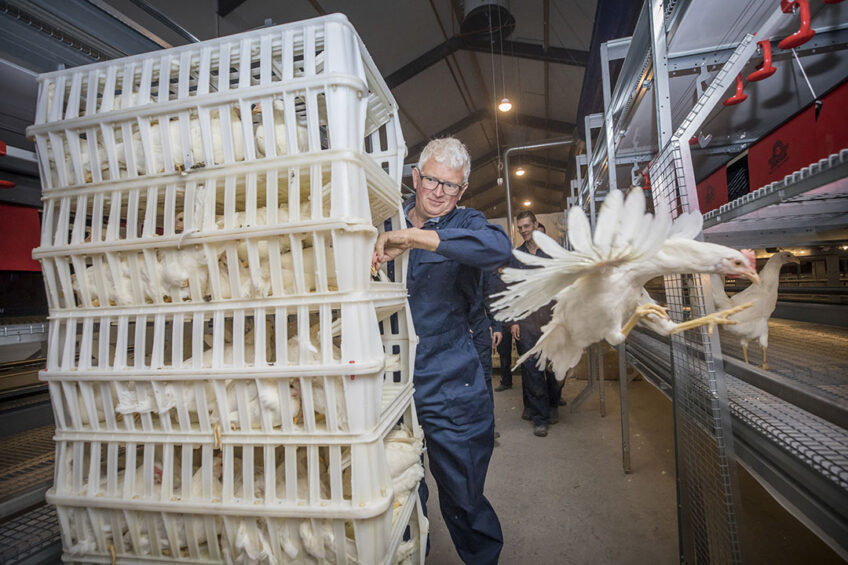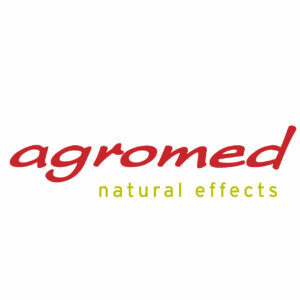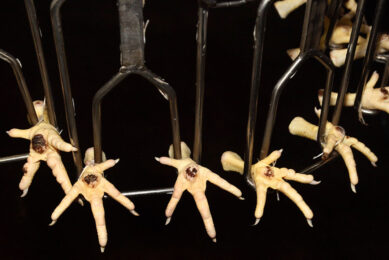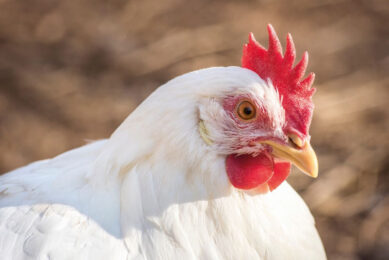Economic upside of maintaining eggshell quality

Eggs are in short supply, as are new pullets. That is why – for farms that are not affected by the fall-out from avian influenza – it could make sense to keep birds in production for longer. Keeping hens productive at an older age has a clear economic upside, but eggshell quality and nutritional needs are parameters that should not be overlooked.
Under the current challenging market conditions, non-integrated, smaller egg producers are having difficulties in sourcing new pullets. Even though this problem is less pressing for the big players, in the context of sustainability in egg production we have to consider keeping laying hens as productive as possible, even at an older age.
Given the pressure of high egg demand, on the one hand, and the limited availability of birds and high feed costs, on the other, it is of the utmost importance to maintain the profitability of an egg production business. Among the most important parameters to look at are body weight and laying performance but equally important is eggshell stability.
A stronger shell means less breakage at the lay moment, during collection of the eggs and less risk of damage caused by equipment during sorting or transport. Additionally, eggshell quality is even more relevant from the perspective of consumers’ growing concern about animal health and well-being, not least, because poor eggshell quality constitutes a risk to food safety.
Hen nutrition plays an important role in maintaining eggshell quality and becomes even more critical as the birds age. Recent research has shown that wood-based solutions can help to improve eggshell quality and thus food safety, which is an important benefit in view of today’s growing consumer concerns.
The eggshell is the first effective barrier when it comes to external micro-organisms and pathogens entering the egg. It is also the first indicator for the customer when it comes to product selection. However, we also have to take a closer look at the producer. It is estimated that 4.77% of the eggs produced are considered to be unsellable due to poor eggshell quality, due to cracks, pimples, translucency and speckles.
Phenomena which become more and more common with age. This results in substantial losses for the producer. Therefore, combining eggshell quality with maintaining production performance at an older age represents an important and major challenge for laying hen producers.
Performance of older hens
Many studies have been done on the use of wood lignans in animal nutrition. However, a study was carried out for the first time in 2022 to determine the effects of wood lignans on the performance of laying hens at a later stage of their life cycle. For the study 90 hens (Lohmann LSL) were used during a 112-day trial period. The birds were observed from 61 to 76 weeks of age. A total of 3 treatments were applied, resulting in 10 replicates per treatment with 3 animals per replicate.
The treatments were a control diet based on corn, soybean meal and limestone, a diet consisting of the control diet supplemented with a wood-lignan-based feed supplement dosed at 200 grams/ton (g/t) and another diet supplemented with 400 g/t of the wood-lignan-based feed supplement. The parameters observed were body weight, laying performance and, of course, eggshell stability.
Although the supplementation of wood lignans caused no changes in body weight throughout the 112-day trial, overall feed intake was significantly reduced compared to birds in the control group (Table 1). Differences increased with increasing trial duration. Moreover, the inclusion of wood lignans in layer diets improved egg number and egg mass in a dose-responsive manner.
The numerical differences were seen in the birds fed the dosage of 400 g/t and at a lower dosage of 200 g/t. Reduced feed intake combined with a significantly increased egg mass was expressed in a significant and dose-responsive improvement of feed to egg mass ratio of 3.3 and 8.5% for dosages of 200 g/t and 400 g/t, respectively, relative to the un-supplemented control group.
Looking at the development of feed intake due to the supplementation of the laying hen diet with wood lignans – which reduced the feed intake significantly – when feed intake and the performance data are taken together, it can be concluded that the reduction in feed intake is not due to reduced feed acceptance but less need for feed intake due to better nutrient utilisation.
Maintaining economic profit
The study described above showed a clear impact on eggshell quality and overall performance due to the supplementation of wood lignans to the feed of laying hens. This gives the producer a clear advantage from an economic point of view. Thus, it may be concluded that wood-based solutions can be a real benefit when it comes to the production cycle of laying hens, especially in the later stages of their life cycle.
Join 31,000+ subscribers
Subscribe to our newsletter to stay updated about all the need-to-know content in the poultry sector, three times a week. Beheer
Beheer



 WP Admin
WP Admin  Bewerk bericht
Bewerk bericht